Hair Loss in Toronto — Is Transplant Your Only Option?
Hair loss can impact your confidence, your self-image, and even how others perceive you. While hair transplant in Toronto has become increasingly popular, many people wonder: Is it really the only solution?
The answer is no. Today, there are several effective, non-surgical alternatives that can slow down hair loss, stimulate regrowth, and improve scalp health—without surgery or downtime.
In this article, we explore the top alternatives to hair transplant in Toronto, who they’re best suited for, and how you can start your hair restoration journey safely and effectively.
Platelet-Rich Plasma (PRP) Therapy: Regrow Hair Naturally
PRP therapy is one of the most popular non-surgical options for hair restoration in Toronto. It involves drawing a small amount of your blood, spinning it in a centrifuge to extract platelet-rich plasma, and injecting it into areas of thinning hair.
Benefits:
-
Stimulates natural hair growth
-
Improves hair thickness and density
-
Zero downtime
-
Ideal for early-stage hair loss
Many Toronto clinics offer PRP as a standalone treatment or as a complement to a hair transplant. It’s especially effective for clients in their 20s to 40s dealing with androgenetic alopecia or post-partum shedding.
Low-Level Laser Therapy (LLLT): Painless & Proven
LLLT uses safe, red light wavelengths to stimulate hair follicles, increase blood flow, and reduce inflammation on the scalp. It can be performed in-clinic or at home using FDA-cleared laser caps and helmets.
Key Features:
-
Pain-free and non-invasive
-
No side effects
-
Improves hair thickness and slows loss
-
Suitable for both men and women
Toronto patients often use laser therapy alongside PRP or hair growth serums for better results over time.
Scalp Micropigmentation (SMP): Instant Illusion of Fuller Hair
Not everyone wants to regrow hair—some want the appearance of a fuller head of hair without waiting months. That’s where Scalp Micropigmentation shines. This non-surgical solution uses tiny dots of pigment to mimic the look of real hair follicles.
Best For:
-
People with shaved or thinning hair
-
Those not eligible for transplant
-
Scar camouflage (from previous surgeries)
In Toronto, many SMP providers offer custom shading and natural color matching, giving clients realistic and satisfying results.
Prescription Medications: Finasteride & Minoxidil
If you’re in the early stages of hair loss, prescription medications can be incredibly effective.
Finasteride (Propecia):
-
Oral DHT-blocker that prevents further hair loss
-
Particularly effective for men
-
Requires long-term use
Minoxidil (Rogaine):
-
FDA-approved topical foam or solution
-
Widely used for both men and women
-
Encourages hair regrowth over time
While these treatments don’t work for everyone, they are often the first line of defense before considering hair transplant in Toronto.
Hair Growth Serums and Scalp Treatments
Toronto clinics now offer a range of topical products designed to nourish hair follicles, cleanse the scalp, and promote circulation.
These often contain:
-
Caffeine (stimulates follicles)
-
Biotin (strengthens hair)
-
Niacinamide (improves blood flow)
-
Peptides and growth factors
Though results vary, consistent use of medical-grade serums combined with scalp massage can yield visible improvement in hair health.
Nutritional Support and Supplements
Many Toronto hair restoration experts agree: healthy hair starts from within.
If your hair loss is tied to nutrient deficiencies, supplements can be life-changing. Key nutrients include:
-
Iron
-
Vitamin D
-
Zinc
-
Biotin
-
Omega-3 fatty acids
-
Collagen peptides
Professional hair clinics in Toronto often run blood tests to check your vitamin levels before creating a custom supplement plan.
Lifestyle Changes: Stress Reduction & Hormonal Balance
Hair loss is often a symptom of something deeper. High stress, sleep issues, thyroid dysfunction, or hormonal imbalances (especially in women) can cause significant shedding.
At holistic clinics in Toronto, treatments may include:
-
Acupuncture
-
Adaptogenic herbs
-
Stress-reducing practices like meditation or yoga
-
Hormonal testing and rebalancing
By treating the root cause, these alternatives offer more sustainable results than transplants alone.
When Is Hair Transplant Still the Best Option?
While these non-surgical options are highly effective, they may not work for severe or late-stage hair loss. If you have large bald patches or significant thinning, a hair transplant in Toronto might still be the most effective solution.
However, even in these cases, non-surgical treatments like PRP, LLLT, and supplements are often used to support transplant success and prevent future loss.
Combination Therapies: The Modern Toronto Approach
In 2025, leading Toronto hair restoration clinics are moving toward multi-modal approaches. This means combining treatments for best results, such as:
-
PRP + Microneedling + Minoxidil
-
Finasteride + LLLT
-
Hair transplant + PRP for retention
This holistic approach gives patients customized results based on their hair type, health, and goals.
How to Choose the Right Alternative in Toronto
Every person’s hair loss journey is unique. Here are some tips to find the right solution:
-
Book a consultation with a hair restoration specialist in Toronto.
-
Ask about diagnostic tools (blood work, scalp scans, genetic testing).
-
Be honest about your lifestyle, medical history, and goals.
-
Don’t chase quick fixes—commit to consistent care.
-
Consider combining non-surgical options for better results.
Why More People in Toronto Are Exploring Alternatives
-
Non-invasive with no downtime
-
Affordable compared to surgery
-
Customizable based on age, gender, and hair type
-
Better for early intervention and prevention
-
Fewer risks and side effects
Toronto’s beauty and wellness scene is thriving, and patients now expect safer, smarter solutions—not just surgical ones. That’s why these alternatives are growing in popularity each year.
Final Thoughts: Empower Your Hair Journey
Hair transplant in Toronto may be the gold standard—but it’s not the only path to confidence and restoration.
Whether you’re exploring PRP, laser therapy, medication, or lifestyle change, the key is education, early action, and personalized care.
Don’t wait until hair loss becomes severe. The sooner you explore your options, the better your chances of keeping your hair healthy and strong—surgically or otherwise.

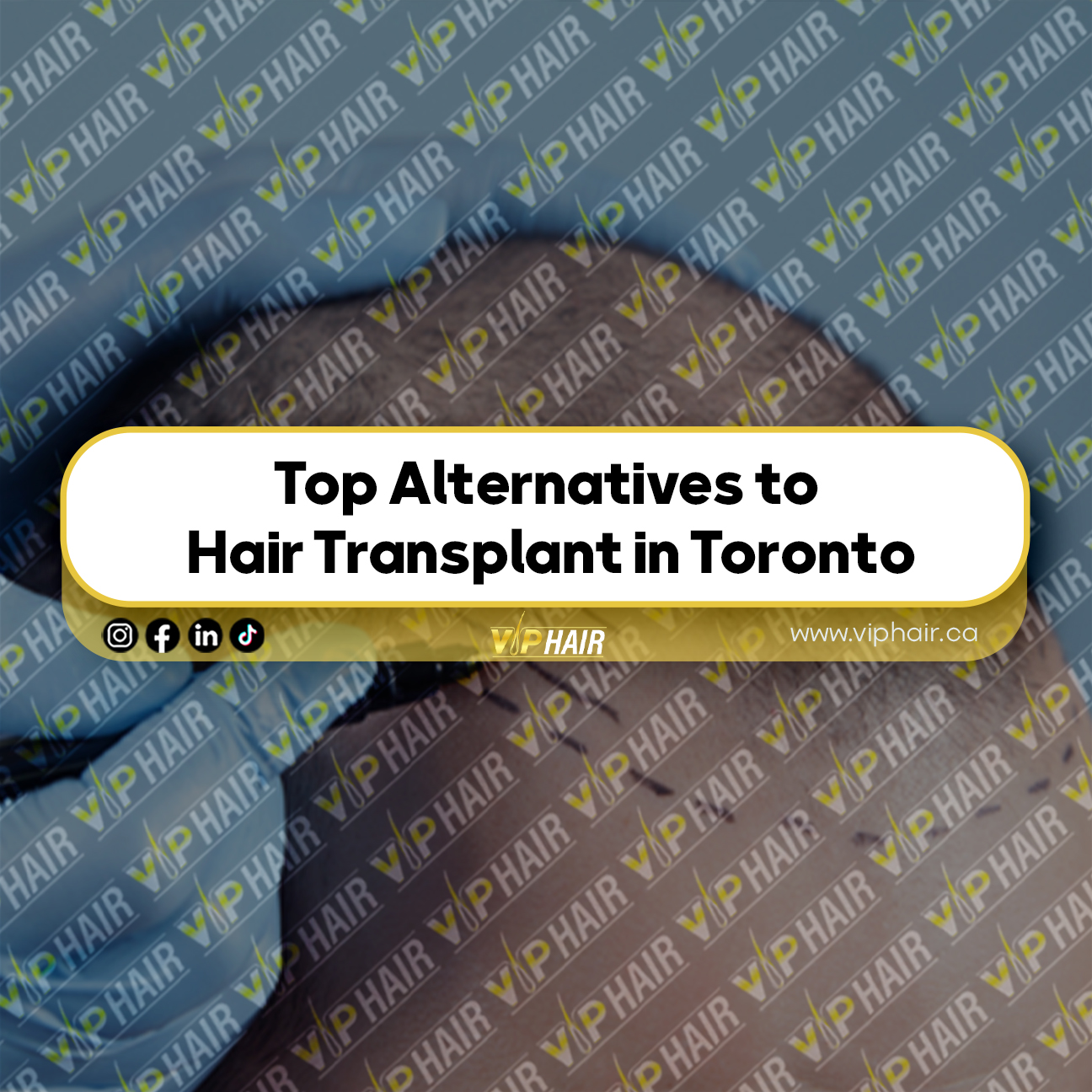
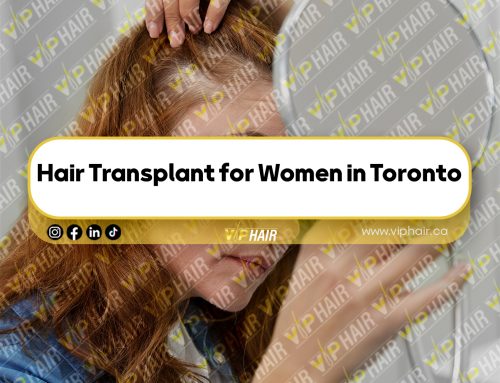
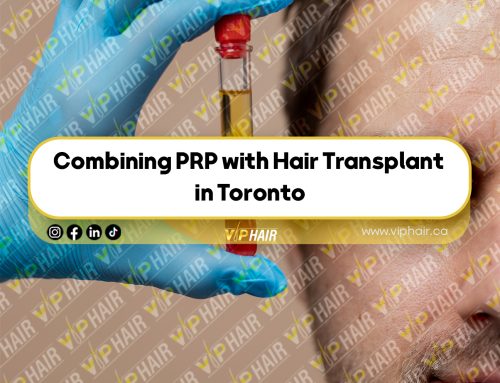
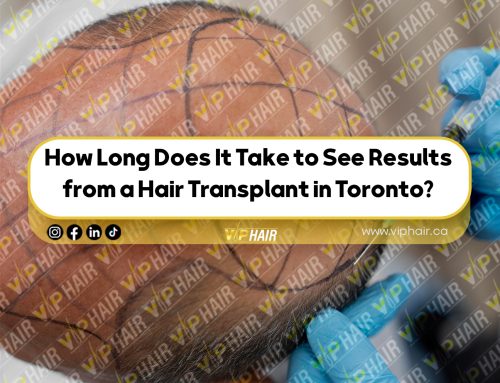
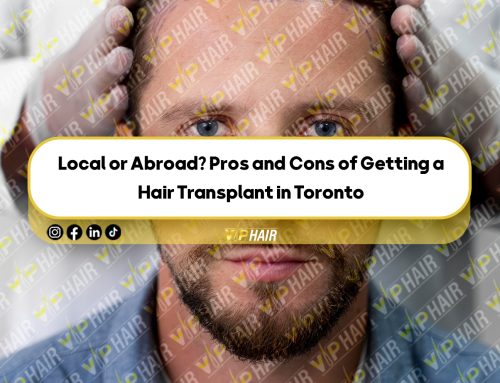
Leave A Comment